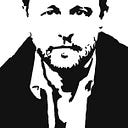3 QUESTIONS TO FIND YOUR PURPOSE
(Or Where You Come From Before Your Born is Where You Go When You Die)
I was driving, my son, Jack Henry, and two of his friends home from school the other day when suddenly, the youngest of the trio asked,
“Do either of you remember what heaven was like?”
The needle dropped, the record skipped and I was like, “Whhaaaaaaa?”
Neither Jack Henry nor his other friend was fazed by the question but neither of them said they could remember heaven.
The inquisitive little buddy said he didn’t remember any details either.
I had to know — so I asked him, “Wait… so have you been to heaven?”
“Yeah,” he said. “Before I was born. But I don’t really remember any of it.”
Now, obviously, it would be a much cooler story if he had started rattling off details of his time in the clouds — that’s the kind of stuff that gets you a book deal and appearances on daytime television. Despite his lack of inside info, it still got my attention because it kind of lined up with a story I love.
In his dialogue, The Republic, famous Greek philosopher, Plato, tells a story that has become known as The Myth of Er.
Basically, in this story, Plato explains that when we die, we either go to a “heaven” or a “hell” for 1000 years, depending on how we lived. Good people get 1000 years of pleasure, bad people get 1000 years of torment. But, after those 1000 years, everyone is taken to another place — a kind of liminal space where they are made to choose a new life — what they’ll do, how they’ll live, who their parents are, etc. Once they have chosen their new lives, they are made to drink from “waters of forgetfulness” which ensure they don’t remember their time spent between lives, and then they’re sent to start the whole cycle over.
Now, I’m not arguing for this vision of the afterlife. I don’t actually think Plato was either. I see it as a metaphor. If you have a story for what happens after we die or before we’re born, chances are I’ll see it as a metaphor as well. I’m not that interested in that sort of cosmology. The time before you existed represents millions and millions of years. The time after you die stretches on into infinity. The time you’re alive, if you’re lucky, represents a scant 80 years. I think we’re better off paying attention to that.
What I like about the Myth of Er is the implication that we come into this life on purpose — that, for me, implies meaning. Maybe we chose the life we did because we saw it as the best way to get a certain thing done — the quickest way to accomplish something. I like that line of thinking. It kind of informs everything I do.
The only problem is those damn waters of forgetfulness — if we came here with a plan or a purpse, we quickly forgot it.
Or mostly forgot it. I think it must take the waters of forgetfulness a while to fully kick in — kind of like how if you take an advil to get rid of your headache, it doesn’t start working immediately. So, because of this latent effectiveness, when we’re little kids, we (like my young friend at the beginning of the story) still have a sense of where we’ve been — and maybe why we’re here.
In his book Mastery, Robert Greene implies that when we’re children, we have a sense of what we’re here to do — it expresses itself as interest, proclivities, and passions. A person who chose to come here to be a vetenarian may be drawn to animals, as a youth.
So, what’s an adult to do? Are you, once you’re grown, out of luck? Do you have no way of uncovering your pre-selected purpose?
Well, no, I don’t think so — it just takes a little more soul-searching and introspection. And, I think your childhood is key to that search.
Here are three questions to ask yourself to begin:
- What did like to do as a child? Not TV. Not video games. Not passive entertainment. But what sorts of things did you do, not when you were turning your brain off, but when you turned it on? What sort of things did you do, as a kid, that got you excited? Drawing? Reading? Collecting bugs? Whatever your answer, that’s likely a clue to your answer.
2. Who were your heroes as a child? Who did you look up to? And why? What were they doing that you wanted to emulate? How did they show up in your life? We choose our heroes for a reason. They’re often what we hope to become, one day.
3. What did you need more of in your life as a child? What were you missing? What did you want to see, feel, or have? Sometimes the things we don’t have made as big an impression on us as the things we do have — and they create within us a drive to create that thing in the world — to fill a Vaccum.
If you ask yourself these three questions with honesty and intention, I believe they’ll begin to reveal a trail of breadcrumbs you can follow to your purpose.
But, you’re a human being and this isn’t algebra — plugging information into an equation won’t always give you the answer you’re looking for — but I think your destiny is looking for you at the same time you’re looking for it — so don’t give up!
Here’s a video version of this essay:
To get the exercise, famous mythologist, Joseph Campbell used to find his purpose click here: http://eepurl.com/htQq_9
